All citations from: Storey, John. Cultural Theory and Popular Culture. Available from: VitalSource Bookshelf, (9th Edition). Taylor & Francis, 2021.
Don't wanna be here? Send us removal request.
Quote
What comments does “The Bear” make about the class through its portrayal of gender, masculinity, race, and the working class?
Guiding Research Question
0 notes
Quote
"Good Will Hunting meets Anthony Bourdain. The Bear is a mix of understated creative genius, brotherhood and internal conflict, served up with some really incredible food. A sophisticated "hole in the wall" style pallet."
Patti Silverman, Google reviews
The show has all of the feel good elements of Good will hunting and yet keeps the same intensity that famous chef and host Anthony Bourdain was able to obtain in his numerous shows and specials.
0 notes
Text
TLDW; The Bear
The Bear premiered when small businesses had either sunk after the pandemic or were trying to find their footing in a post covid restaurant scene. The show centers around an area in Chicago that is also undergoing drastic changes as gentrification takes its toll on the local community. Additionally, the show's primary focus is on the protagonist Carmy, who is doing what he can to save the restaurant. A very present b-plot untangles the life of the now-deceased former owner Mikey Berzatto. As Richie's best friend, Mikey, Carmy's older brother, suddenly overdosed on pills, leaving his family and the restaurant in shambles. All three of these intertwining plots create a show that keeps all viewers holding their breath.
The critical reception to the eight-episode series has been beyond positive. Critics praise the directors for creating a show packed from start to finish without ever feeling suffocating. The main cast has also all received their flowers for the way they are able to convey such intense and complex characters. Finally, the audience has repeatedly expressed their appreciation for how well the show can portray the chaotic and stressful environment of working in a restaurant. As a person who has worked in food service my whole life, I can attest that the show sometimes seemed almost too authentic. A moment I felt was exceptionally moving was when Carmy put the new girl Sydney in charge of the restaurant for the day. Up to this point, Sydney had been doing everything she could to gain the respect of the staff. In this episode, the lack of respect she receives rises to a head as the staff begins to mess with Sydney, causing her to blow up and make a mess right before they open. This interaction only gives the staff even more reasons to treat her horribly.
Most of the show takes place during the summer of 2022 in inner-city Chicago. While there is not much in the series that relates it to this period, in episode seven, Carmy finds out that Richie had been selling drugs behind the restaurant to bring in extra cash. When Carmy confronts Richie about this, Richie explains that this is how they were able to keep the restaurant from shutting down during the pandemic. This moment is the only direct mention of the COVID-19 pandemic in the series, and it adds an extra layer of realism to the show as a whole.
0 notes
Text
Elements that will be studied
The cultural text that will be analyzed for this project is the Hulu original series “The Bear.” In order to study this text, I plan on re-watching the series and taking notes on how the characters are portrayed in their environment. Specifically, I want to take note of the backgrounds and families that the characters come from. This data will help me depict what the directors of The Bear and further what the streaming service Hulu wants to highlight as the culture surrounding middle-class families. I am also going to look at the creator, Christopher Storer, ’s background and see how that might affect the writing and production of the show. I would like to examine Masculinity, Social class & culture, race, and Gender & Sexuality. I feel that the cast and the setting of the show highlight all four of these concepts extremely well. Because the show is relatively new, researching the audience's reaction will be slightly more challenging. However, I hope to find reviews from multiple different sources to help diversify my research. Some of these sources will include rotten tomatoes, in order to understand the general audience, and Hulu promotions, in order to grasp how the company felt the show would and should be received.
0 notes
Photo

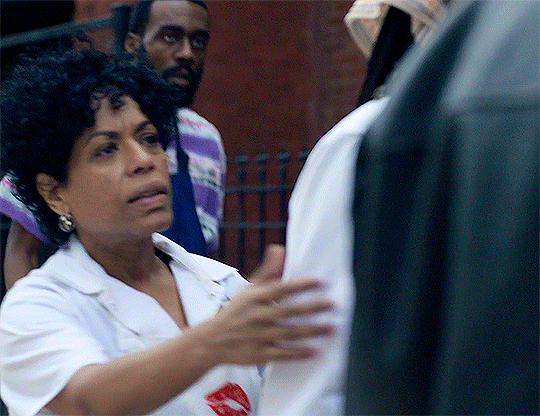
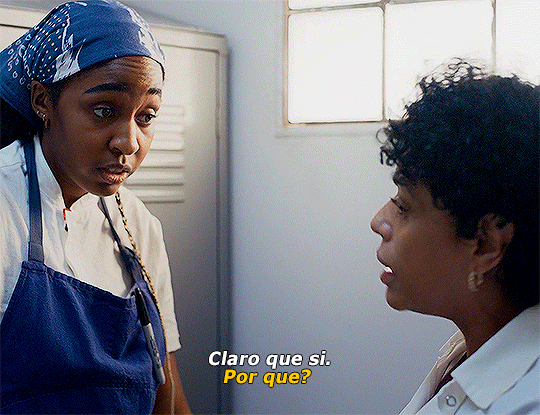
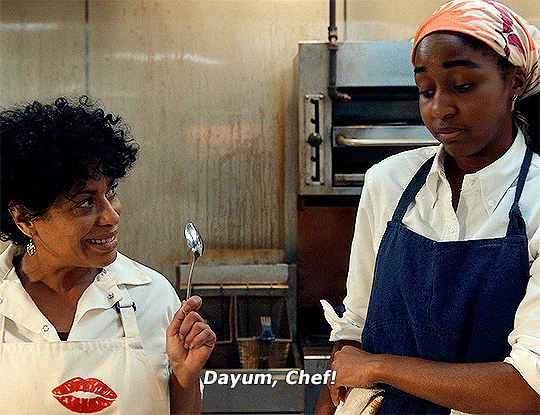
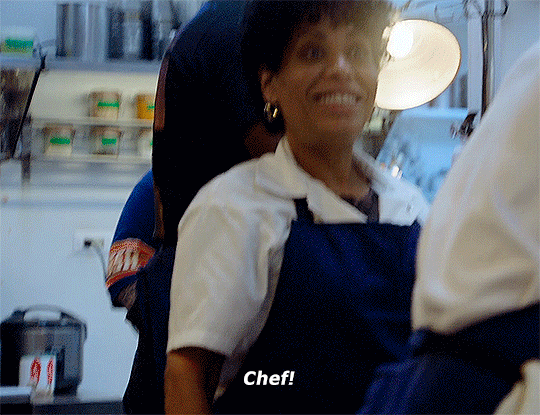
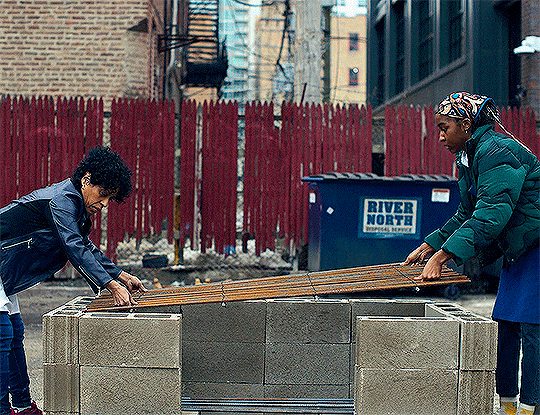
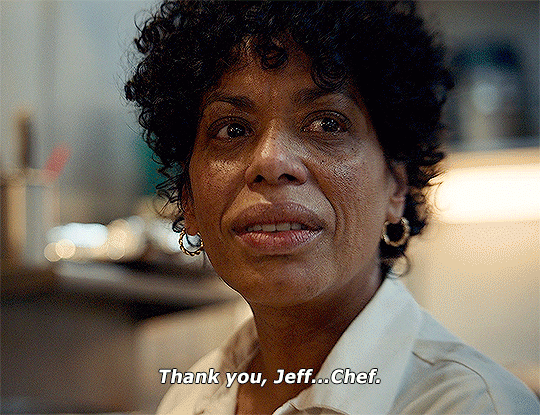
“Beware of bitches with little notebooks.” ↳ the original beef of chicagoland + favorite staff dynamics ↬ sydney & tina
[And also a towel, for Tina? Yes, please, cause it’s very flame-y. Yo, Chef, it’s a fire.]
4K notes
·
View notes
Text
Feminism: Tina
“boundaries between feminists and non-feminists have become fuzzy” pg. 175
The main females in the show portray three different generations of women. The oldest is tina, who, after working at Original Beef sandwich eatery in Chicagoland since its opening, has assumed a maternal role in the restaurant. Tina embodies everything that old-school feminism fought for. She is strong and doesn't take any crap. She has achieved the goal of gaining the respect of the men around her by fulfilling the same hegemonistic role she fought against. She berates Sydney along with the rest of the staff and does nothing to help integrate her to the restaurant.
0 notes
Text




carmy + sugar i love their sibling dynamic so much. sugar already lost one brother, and she's trying so hard to hold on to the only one she has left.
i love the moments they have together, especially when they clash. the restaurant is this force that's simultaneously drawing them together and pulling them apart. it's one of the last pieces of michael they have.
for natalie, the restaurant is like a beast that's steadily consuming her family. it sucks up all of her time, eats away at all of her money, and it led to michael's death. now, it has carmen in its grasp too.
for carmy, the restaurant is his only means of trying to understand michael. carmen desperately wants to know why his brother, his best friend, and in some ways probably his hero, completely dismissed his presence in the one place he felt they could truly communicate.
michael's death sent both carmen and natalie spiraling, and the restaurant is this flashpoint of emotional baggage for them but for widly different reasons.
i love how even with all of that going on, they share little moments together that they can't with anyone else.
carmy calling pete instead of natalie because he's too afraid to call his big sister after ignoring her, knowing that she'll rightfully call him out. when carmy does finally reach natalie, he avoids all of the things they really should be talking about and instead brings up his half-assed apology to pete as an opener, only to be dismissed because sugar sees right through it and his 'soft, shitty bitch' behavior.
moments like sugar asking carmen if he'll fight with her again after they have an argument in her kitchen. because for every missed call natalie leaves carmen, every minute he starts retreating into the restaurant's grip, that's still her little brother, and she'll be there to pull him back to her side.
moments like carmen returning the favor in his own way, by asking natalie if she wants to fight as they sit on the floor of what used to be michael's office. he's extending an olive branch to his sister after withdrawing from her for so long by finally giving her a chance to say all the things he couldn't let her before.
417 notes
·
View notes
Text
Feminism: Sugar
“Rather than feminism working as a critique of what would once have been seen as a sexist image, it is incorporated into the text at the cost of dismissal and de-politicization” pg. 173
Next, we meet Carmy’s sister, Sugar. She pushes carmy to be more emotionally aware and accept the things he rejects in life. This includes his feelings about his brother and his relationship with the restaurant. She is a stereotype of a feminist in the modern day. She has high emotional intelligence and constantly begs Carmy to look into himself. Sugar is the one who convinces Carmy to attend group therapy, where the audience is shown a seven-minute straight monologue of him describing all of his feelings since his brother passed. There is also her husband, who is mocked for being “soft” or “unmanly” even though he loves her and cherishes her much more than others have. Sugar sticks up for her husband on more than one occasion for being a better man, even if he may not be as reckless or loud, or scruffy as the other members of the restaurant staff.
0 notes
Photo



Ayo Edebiri as Sydney Adamu System, The Bear
510 notes
·
View notes
Text
Feminism: Sydney
Somewhere in the middle is Sydney. As the newest member of the Original Beef sandwich eatery in Chicagoland, she tries to reach the level of respect that Tina has been able to garner without succumbing to the same hegemonic structure. Sydney is constantly trying to help the staff but when she says that she is not being taken seriously and that the environment is not healthy for her, she leaves in search of a better, more organized restaurant.
0 notes
Text
Feminism & Post Feminism
“The incorporation of feminism into post-feminist popular culture is a classic example of the processes of hegemony” pg. 175
While the show does carry an underlining ‘girl-power’ ideology, it is clear that there are some problems with its execution. Sydney and Tina are at odds with each other rather than helping each other as the only two females on staff at the restaurant. Then during the episode, when Sydney is placed in charge of the restaurant in Carmys absence, it is clear how little respect Tina has for Sydney. This bickering is also shown when Sydney is forced to take control of the restaurant after a major power outage. Tina continues to undermine Sydney's authority in favor of jokes and sly comments that make the men on staff laugh.
0 notes
Photo
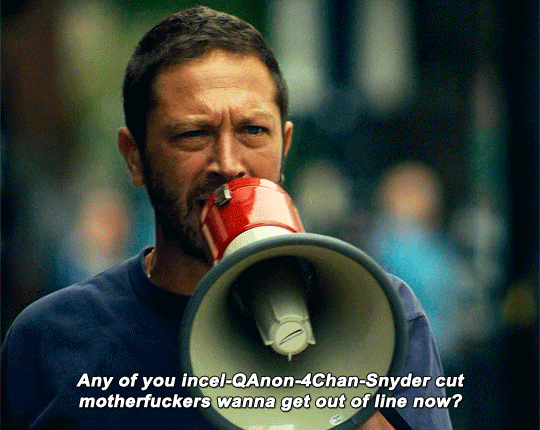


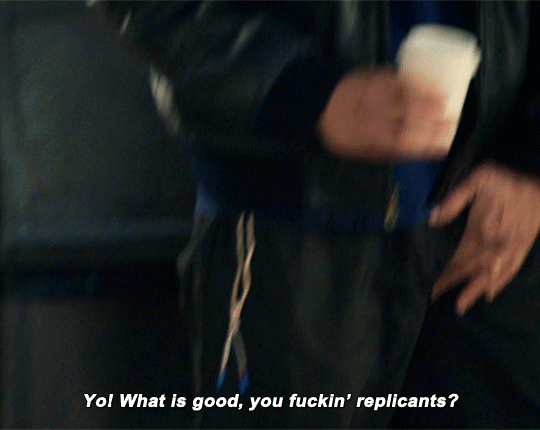




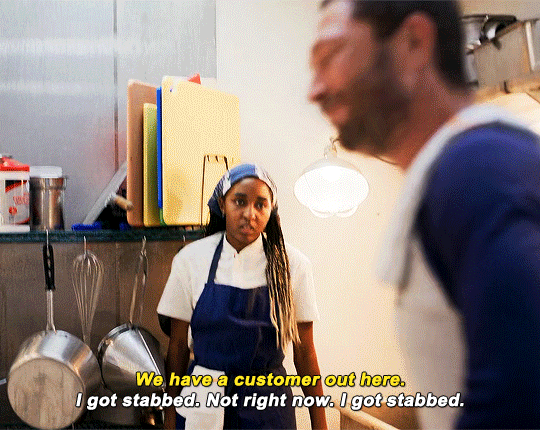
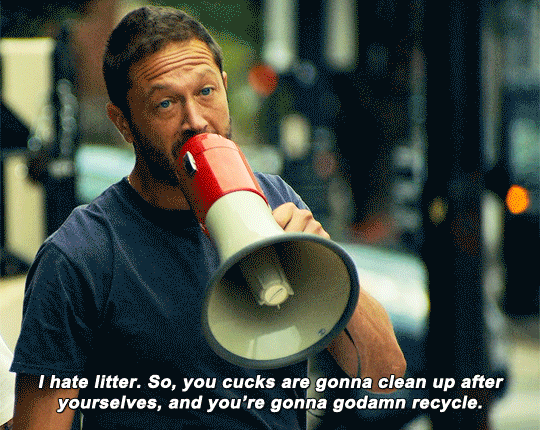
Hey, was Richie always an asshole? Dude, always and forever. Dude, he’s the fucking worst. Mm, yeah, he sucks. Dude, he’s not a nice guy. He’s just- he’s sad inside.
EBON MOSS-BACHRACH as RICHIE JERIMOVICH in THE BEAR
10K notes
·
View notes
Text
Masculinity: Carmy & Richie
“Anthony Easthope theorizes that the idea of masculinity is a cultural concept that things in the pop cultural text have predetermined. In this, he explains that, similar to women men are placed in a gender norm that does not represent their lived experience.” pg.175
Through Richie and Carmy, we see an embodiment of masculinity and how it affects one's progress of grief. Carmy drops everything to take care of the restaurant when Mikey dies. Carmy does this both to keep Mikey's legacy alive and hopefully regain some of the closeness lost after Carmy went to culinary school. Carmy exemplifies a man who has drifted away from that level of recklessness seen in Richie and Niel. Throughout the season, the other male characters consistently tell him to “lighten up” and “act like a man” when he breaks down or tries to be responsible.
Richie is also dealing with his emotional turmoil. However, he hides his feelings about Mikey's death and his daughter to put up a tough exterior. He is constantly making sly remarks about women and the state of the world that he assures are only jokes. An example of this is when Richie goes out on a date with a woman. He drones on, telling a story about an alcoholic bender he had with Mikey when they were younger. The woman pointed out that nothing about the story was entertaining because it seemed dangerous and irresponsible. He continues that she “just doesn’t get it. “ And attacks her character to his friends. As a man growing up in Chicago, he was encouraged to be reckless and found friends that would support his inappropriate behavior. However, now that he has grown up and has a child, he can no longer act the same way.
0 notes
Text
What a ‘new’ man
All of the men in the cast, specifically Carmy and Richie, are examples who have lived inside the pop culture idea of masculinity and are now trying to navigate their lives with the two conflicting ideologies. Carmy has never allowed himself the ability to feel his emotions thoroughly so instead of dealing with his regret, anxiety, and depression he pushes it all into anger and control of the restaurant. He constantly comments on how he is fine and how he will figure it out, playing into the idea that men are not allowed to express their feelings and should instead keep it locked away. Richie does this tenfold. He masks all of his anger and resentment as jokes and insults to Carmy and the rest of the staff. Rather than accept the valid criticisms that Sugar gives him he brushes her off as a ‘bitch’. When he is put in jail after the fight at the bachelor party, he blames everyone else except himself. Richie represents the ‘old’ man while Carmy is trying his best to be the ‘new’ man.
0 notes
Text
Race: Lack of Support for the Supporting Cast
“When black people are discussed they are discussed as black people, whereas when white people are discussed they are discussed as people” pg. 199
Due to the shows setting of modern-day Chicago, the directors would be amiss not to include characters of all different backgrounds. Majority of the supporting cast that is seen working at “The Original Beef of Chicagoland” are all from some sort of ethnic descent. While they are apart of the cast their individual backgrounds are never brought into the forefront of the story. The viewers only get a quick moment of exposition from one of the member of the staff, Ebraheim, when he recounts a war story to Richie. The lack of effort that is put into creating the background of the supporting cast is upsetting especially from a show that spends so much time going into the personal lives of its white counterparts.
0 notes